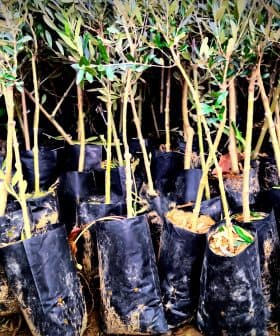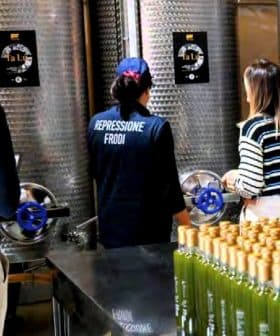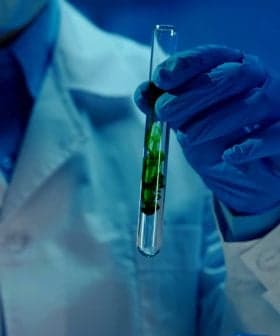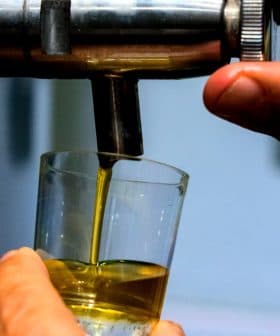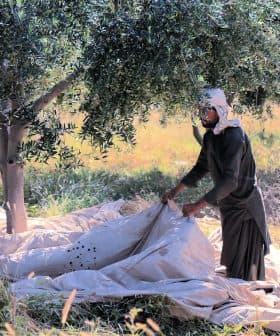Olive Council Investigating Taiwan’s Rejection of Pomace Oil Imports
The International Olive Council has invited Taiwan to attend a meeting to investigate the rejection of olive pomace oil shipments due to the presence of a green colorant, which Taiwan’s Food and Drug Administration says is copper chlorophyll. The European Union has asked Taiwan to revise its testing method, while the IOC has stated that copper pheophytin is not a purity criterion in their trade standard for olive oils and olive pomace oils.
Olive oil’s peak body — the International Olive Council (IOC) — has invited representatives of Taiwan to attend the March meeting of its chemistry experts as the island continues to reject shipments of olive pomace oil on the grounds they contain a green colorant.
In a letter sent Thursday to Taiwan’s Ministry of Foreign Affairs, the IOC said it had decided to investigate the matter and “would appreciate receiving all the information available” on it.
The letter follows Taiwan’s recent rejections at port of olive pomace oil from Italian and Spanish suppliers. Taiwan’s Food and Drug Administration (TFDA) said they tested positive for copper chlorophyll.
Taiwan’s zero tolerance approach
Representative of the European Union (EU), Spain and Italy, have asked Taiwan to revise its testing method, saying it may not distinguish between copper chlorophyll that has been added and that sometimes naturally present in olive pomace oils and grapeseed oils.
However, the TDFA said this week it would stick to its method unless it was proven to be imprecise or another method was proposed to replace it.
Furthermore, while it’s generally held in the EU that copper chlorophyll may not be added to any type of edible oil, Taiwan stressed that it does not permit any at all, whether added or occurring naturally.
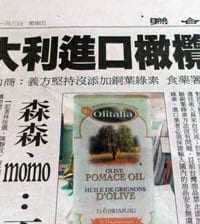
Italian sector queries testing method
ASSITOL, the Association of the Italian Oil Industry, which represents packagers of olive oil and seed oils, told Olive Oil Times that the problem in Taiwan started “when they found local oil producers putting cottonseed oil in bottles labeled as ‘sunflower,’ ‘grape seed’ or ‘olive’ oil.”
ASSITOL general manager Claudio Ranzani said such fraud could have sanitary implications so he understood the reasons for the resulting widespread media coverage in Taiwan and the TFDA’s concern.
“The addition of flavors and copper chlorophyllin made in some cases by the Taiwanese producers was a corollary of the fraud, because it was necessary to give cottonseed oil the appearance of grapeseed or olive oil,” he said.
However this addition posed no health risk, “because flavors and copper chlorophyllin are safely used in other food products,” he said.
Meanwhile, Ranzani said he understood that the TDFA’s tests of olive oils, olive pomace oils and grapeseed oils from Italy had not put their authenticity under any doubt.
“Only in some cases of olive pomace and grape seed oils, they found a small peak indicating the possible presence of traces of copper chlorophyllin,” he said. But ASSITOL’s experts believe such traces can occur naturally in the two oils.
Ranzani said ASSITOL’s investigation suggested that Taiwan was using an analytical method developed in Europe, “but in a different way and on different products.”
“Crude olive pomace and grapeseed oils contain naturally a lot of chlorophyll, coming from the olives and the grape seeds, and traces of copper salts, used by the farmers before harvesting. Also, chlorophyll and copper can combine to form copper piropheophytins (a sort of copper chlorophyllin) during the processing of the oils,” he said.
IOC says copper pheophytin not a purity criterion in IOC trade standard
An IOC spokesperson said the intergovernmental organisation had pointed out in its letter that “copper pheophytin is not considered a quality or purity criterion in the IOC trade standard for olive oils and olive pomace olis and that the standard does not therefore establish any limit or specify any official reference method for its detection.
It had also said that, “however no additive is permitted except for alpha-tocopherol to replace natural alpha-tocopherol lost during refining.”
“We also informed them that it has been decided at IOC level to research further into this matter within the framework of the IOC group of chemistry experts, and that we would appreciate receiving all the information available on this matter and welcome the attendance of Taiwanese representatives, as observers, at the next meeting of the group of chemistry experts due to take place on 11 and 12 March 2014,” the spokesperson said.


